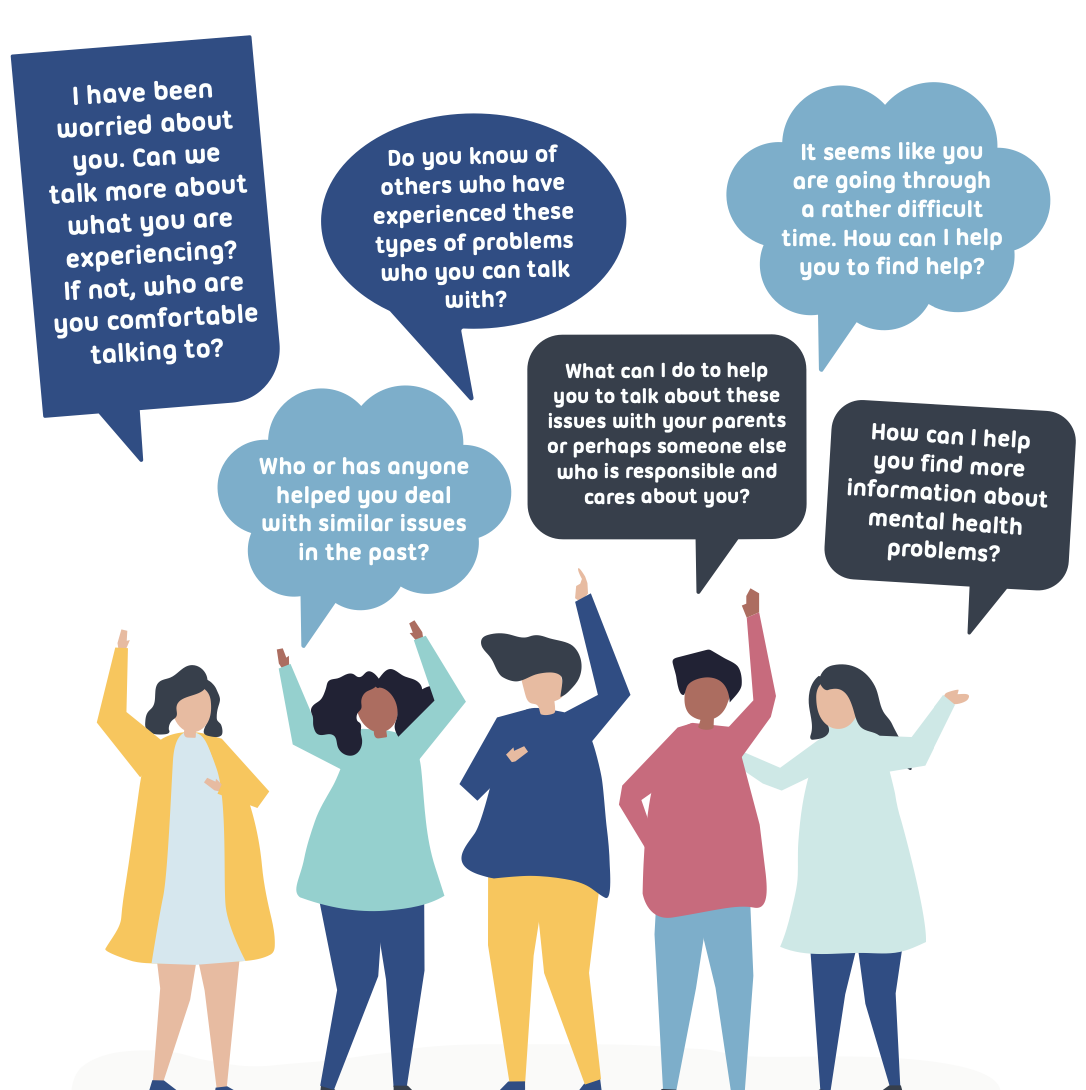Nearly two years of our lives have just gone with the wind!
It’s been more than a year since the COVID-19 pandemic swept through the world. Life has been unpleasant during this current outbreak and what we worry about most is one’s mental health that has been taken for granted all these while. With the high number of suicidal cases in Malaysia, it is important to take someone seriously when they are depressed or going through a difficult phase. Allow the person to speak freely about their situation. Allow them to express themselves.
Avoid dismissing the person’s feelings and experiences. Try not to make them feel worse and don’t try to persuade them to change their minds or feelings. Try some open ended questions and make sure to actively listen to their response.
Do not attempt to resolve their problem
Acknowledging that someone else has heard you is sometimes more essential than having someone offer alternatives.
Check on your friend if they know what they want to do next. We often have abilities inside us that are simply waiting to be utilised.
Here are some examples of what NOT to say:
- Nah, don’t worry it’s not as bad as you think.
- How could you be so selfish though?
- Eventually things will get better
These kind of responses might make a person feel even more confused and lonely than ever.
Rather than that, be attentive on what they’re going through:

Telling someone they are erroneous isn’t a good idea
There are no wrongdoings when someone is talking about their feelings and experiences. You will not have the same response to the same situation.
If you say stuff like this, you’re NOT paying much attention.
- You shouldn’t be feeling this awful’
- Oh gosh, you’re exaggerating’
- It’s not as bad as you think
Don’t tell someone that, ‘You’ve gained so much weight’
Never ever do that!

If you don’t have better things to say, then I recommend you guys to swallow your words as it might cause more ailments.
Since these words carry so much weight, use remarks like this as a chance to offer tangible health advice and support.
- What would make you happier?
- What aspects of your life are satisfying? Unsatisfying?
- What are you feeling right now?
- What worries you?
- What can I do to help?
What we say and how we say it matters, so it’s worth halting before making a body-related comment to consider how even the most well-intentioned comment could come across as a judgement or insult to someone else.
“It’s okay to not be okay”
Remind your loved ones that they don’t have to find a solution to their emotions now, and certainly not in the future. Whatever they’re experiencing is entirely valid, and they don’t have to rationalise it or convince themselves out of it.

Other techniques that may be of help to someone else:
- Whatever you’re experiencing, is completely natural and reasonable.
- You don’t have to rush your emotions. I’ll always be there for you.
- Don’t be too hard on yourself if you’re having an awful day. This is a challenging time and it shall pass too.
Show them that you want to understand and express sympathy
Concerned face-expressions are a powerful way for us to have a non-verbal communication. This indicates that you truly care about their well-being and are willing to hear the truth.
- Nothing will ever change the fact that you are very important to me.
- I wish I could take away this sorrow from your heart since you’re a great soul.
- Can I give you a hug?
It’s not always easy to respond to someone who is going through a tough moment. You may discover that you need to suppress some of the things you want to say instinctively, in order to focus on the things that will be most beneficial. But if you can show up for your loved one in a genuine and compassionate way, you might just be able to help them get through one of the most tough times of their lives.
Years from now, it ain’t your words that will be remembered, it’s the generosity and warmth behind them that will be cherished.
Remember that you’re dealing with a person who is mentally and physically drained in these tough times. Hence, use the right strategy for dealing with mental exhaustion as it varies accordingly from one individual to another.
Follow us on Instagram, Facebook or Telegram for more updates and breaking news.








